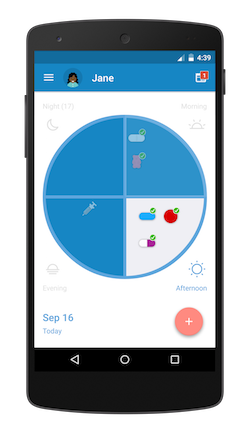 Boston's Brigham and Women’s Hospital, in partnership with Evidation Health, will test Medisafe’s medication adherence app in a randomized control trial of 390 patients taking medication for high blood pressure. Patients will be monitored with an at-home Bluetooth blood pressure cuff.
Boston's Brigham and Women’s Hospital, in partnership with Evidation Health, will test Medisafe’s medication adherence app in a randomized control trial of 390 patients taking medication for high blood pressure. Patients will be monitored with an at-home Bluetooth blood pressure cuff.
“I see patients in an acute care setting and there’s a hope that the technology will help people but it’s unclear at this point,” Dr. Kyle Murowski, a fellow in implementation research at the Brigham and Women’s Center for Healthcare Delivery Sciences, told MobiHealthNews. “A lot of the doctors see the technology as a barrier to clinical care, but the technology companies are saying ‘no, no, it’s going to help’. We want to make sure we can talk to each other in an appropriate way with good evidence.”
Murowski, one of the lead investigators on the study, said that Medisafe has published impressive data of its own showing that the app — which includes medication reminders, an educational newsfeed, and social support from friends — improves blood pressure control. But that data wasn’t randomized, so it can’t rule out the possibility that the sort of people who would seek out a blood pressure app are just naturally more adherent.
“In … previous studies where Medisafe has shown there is some evidence that their app is helpful, those are patients that already had the goal of trying out the app to help them. So after they use the app, they have a tool to get them there,” he said. “But the question is ‘would they have gotten there anyway?’ Would they already have had their blood pressure controlled without the app? That’s the question that remains this side of randomization. Once randomization happens and you can compare two groups, and you can hard and fast say ‘the technology is providing the medication control.’”
Evidation Health is managing the logistics of providing patients with the blood pressure monitors and training them to use them.
Hypertension is known as “the silent killer” because it’s largely asymptomatic: patients with high blood pressure have a higher risk of heart attack and stroke, but don’t actively feel bad. Murowski says these factors make it ripe for testing adherence interventions.
The principal investigator on the study is Niteesh Choudhry, who presided over a famous 2011 trial called MI FREEE (Post-Myocardial Infarction Free Rx Event and Economic Evaluation) which studied the effects of free medications on heart attack rates.
















